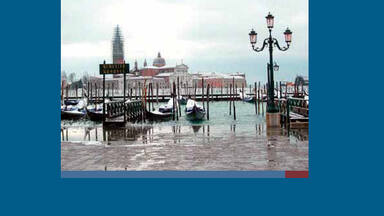Euro-Mediterranean Cities in the Post-pandemic Era
The coronavirus has challenged the core of what makes cities vibrant and successful: busy streets full of people. Will these cities ever come back to be the same? The webinar on Euro-Mediterranean cities in the post-pandemic era, organized by the Union for the Mediterranean (UfM) Secretariat in cooperation with the UNESCO World Heritage Centre, reflected on sustainable urban development in the Mediterranean region after COVID-19, climate change, cultural heritage, and on the approach of the 2011 UNESCO Recommendation on the Historic Urban Landscape.
The event was opened by the UfM Secretary-General, Nasser Kamel, chaired by the Deputy Director of the UNESCO World Heritage Centre, Dr Jyoti Hosagrahar, and structured around a conversation with Prof. Richard Sennett, Senior Fellow at the Centre on Capitalism and Society at Columbia University and Visiting Professor of Urban Studies at MIT.
Dr. Hosagrahar introduced the importance of using this moment of crisis to rethink the significance of place and identity in furthering sustainability and resilience. She recalled that the Euro-Mediterranean region has a large number of World Heritage cities and numerous other cities with valuable urban heritage. She addressed the importance of integrating the protection of urban heritage in solutions for sustainable urban development from housing to public space in line with the UNESCO 2011 Recommendation on the Historic Urban Landscape.
The discussion dwelt upon the concepts of communities and their well-being in cities, urban compactness and density; historic cities and urban heritage as a resource for sustainable development; how the pandemic has exacerbated inequality within cities, especially impacting informal workers and people with low-skilled jobs; sustainable tourism; the role of public transport, currently seen as unhealthy, but basic to ensuring access to economic opportunities and responding to challenges of climate change; and ways to kick-start a green recovery after the pandemic.
The webinar will contribute to the ongoing work on the “UfM Strategic Urban Development Action Plan 2040 for sustainable, resilient and inclusive cities and communities in the Mediterranean”, which is due to be finalised by the end of 2020.
The webinar was followed by 90 participants, including representatives of public authorities working on housing and urban development in the Euro-Mediterranean countries experts, academics, students, representatives of intergovernmental organizations and NGOs, international financial institutions, and donors. There have been more than 600 viewings in social media during and right after the event.



